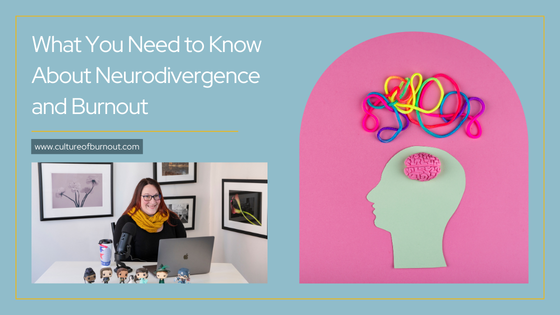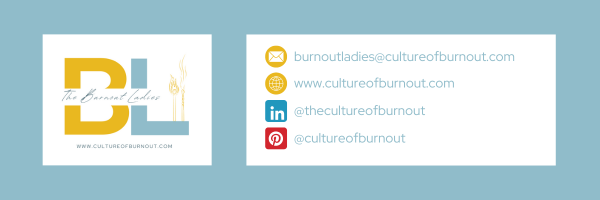
Hi, Kristen here! I’m not sure what you can know about everyone’s neurodivergence, but I can tell you what you need to know about mine. Hopefully, this will help you learn more about neurodivergence and burnout as well.
What my neurodivergence looks like
I have hypomanic bipolar 1, which basically presents as me going back and forth between workaholism and depression. A true joy. For decades, I was misdiagnosed and medically mismanaged, and so I ended up on medication that made me numb from the depression and fed the workaholism. I was putting in 90 hours weeks without breaking a sweat. I wasn’t upset or exhausted by it, and I got tired of telling people I was fine and them thinking I was blowing them off. In the moment I was fine – but in accumulated labor, I was not.
What we know now is that my hypomania means I can work nearly all of the time, but I have to force myself not to so that I don’t hurdle into burnout with gleeful abandon. So, that means bumpers in place to keep me safe – like in bowling. I ignore them sometimes still, but in general I’m getting better. I’m at least aware of why I’m working like that, and that I can do things about it.
It’s a weird journey, when your brain wants to tell you all the time that burnout isn’t possible, but your body reminds you that it is. I don’t recommend it.
So what about neurodivergence and burnout?
Consider that the hyper-productive folks around you might be neurodivergent. Telling them to stop isn’t helpful – that’s too big a concept and they might not know how. Similarly, praising them might make them feel weird – it’s not an effort to work like they do, and they’re not sure why you’re so impressed.
In other words, ask more questions, pay attention, listen, and make fewer assumptions.
I am growing, as I said. I will always hyperfocus, we’re just trying to make sure it’s not always on work these days. Ask me about the batting averages of each member of my favorite baseball team, for instance. It’s a journey, and it’s mine, but I know I’m not the only one.
Whatever your burnout management looks like, remember that it’s valid. If it doesn’t hurt anyone, and it helps you, then do it. Also remember that understanding neurodivergence and burnout can only make you a better friend, co-worker, and leader.
If you want to learn more about different types of burnout, check out our book HERE.
Or, sign up for our newsletter HERE and get our insights delivered straight to your inbox.



